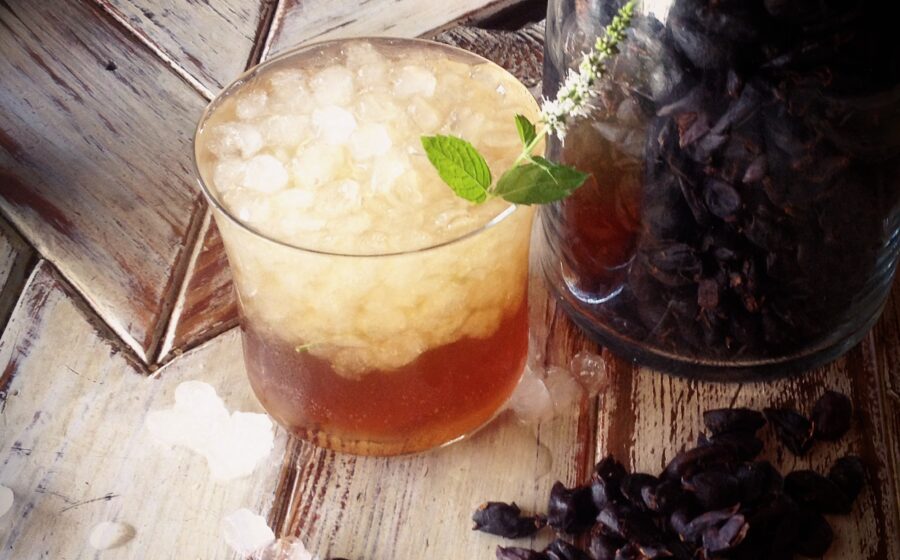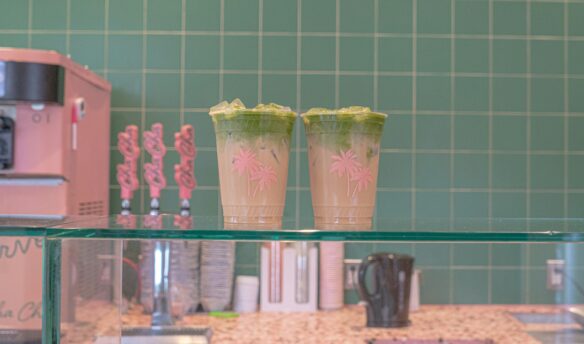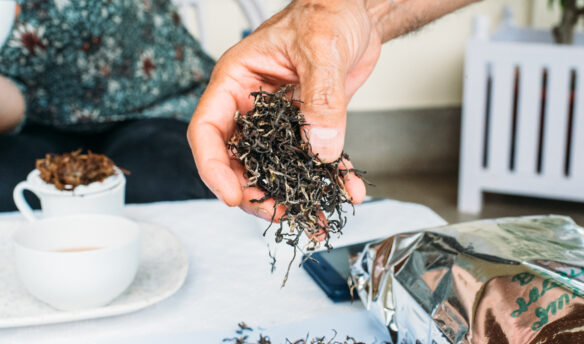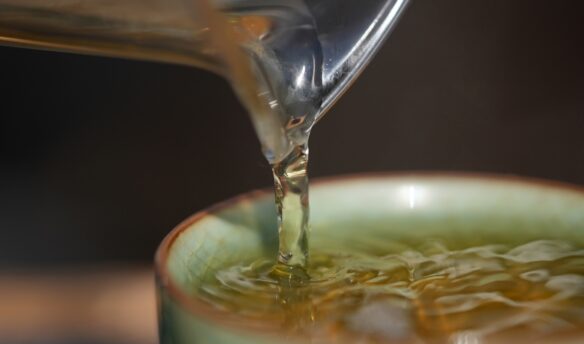[B]y now you’ve probably come across cascara tea, a refreshing tisane made from the dried husks of the coffee cherry. Brewed cascara tastes fruity and bright, with notes of hibiscus, citrus zest, and tobacco. Cafés have proved that the possibilities for cascara are many, from zesty iced tea, to spiced qishr (a Yemeni drink with ginger and sugar), to effervescent cascara sodas, and rich cascara soda floats.
Portland’s Laurelwood Public House & Brewery even put a twist on always popular coffee beer by crafting Cascara Obscura, a dark, fruity Belgian dubbel made with coffee cherry husks. At Colectivo Keg Co., the beer-brewing side of Colectivo Coffee in Milwaukee, Wisconsin, the Cascara Farmhouse Ale turns coffee skins into a crisp, warm-weather ale. The trend of introducing beverage lovers to this lesser known aspect of the coffee plant has spread quickly across the third-wave world, spilling into brewing, fine dining, and solidifying it’s place in tea blending (because it’s dried fruit, technically cascara is a tisane).
Cascara soda might be 2014’s summer drink, if iced coffee were better at sharing the spotlight. The sparkly tisane is a popular menu item at roasters like Everyman Espresso in New York, The Coffee Collective in Copenhagen, and MadCap Coffee in Michigan, but at Artifact Coffee in Baltimore—Spike Gjerde’s artisan, food-friendly coffee company, the sister to his acclaimed Woodberry Kitchen—cascara soda gets a mixologist’s makeover.
Like most cascara sodas, Artifact’s is made with a concentrated extract of cascara and sugar. Artifact uses Counter Culture Coffee’s cascara (from Aida Batlle’s notable Finca Mauritania) and turbinado sugar, but adds verjus, a tart, acidic juice pressed from unripened grapes to make their cold-process extraction. The soda is served in a rocks glass, appropriate in an establishment that serves coffee alongside cocktails, including one made with rye whiskey, espresso, and Mexican cajeta (the Mr. Prospector). Manager, Sean Waters, explains the choice to add verjus to Artifact’s housemade cascara soda: “Our verjus is made from clipped grapes that are made into an immature wine. This ever so slightly alcoholic grape juice brings a great sour acidity, acting as almost a citrus component but with malic rather than citric acid.”
Artifact’s Cascara Soda
1.5 oz cascara syrup,
served over crushed ice in a rocks glass.
Top with sparkling water.
Garnish with mint or lemon balm.
Photo courtesy Artifact Coffee.








